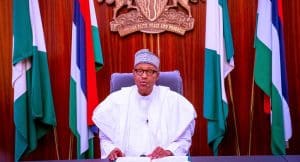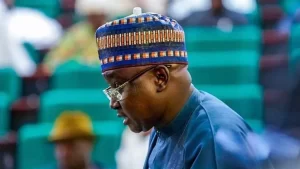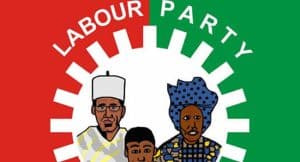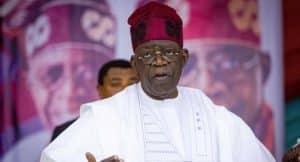President Muhammadu Buhari has urged the developed world to provide duty-free and quota-free market access to ensure that goods from the world’s 46 least developed countries are incorporated into regional and global value chains.
President Buhari stated this in the UN Conference on Least Developed Countries, which took place in Doha, Qatar.
In his presentation, Buhari vehemently condemned the current configuration of the world financial system, which throws an unsupportable burden of external debt on the most vulnerable countries.
According to a statement by his Senior Special Advisor on Media and Publicity, Mallam Garba Shehu, the President warned that such debt loads would make it virtually hard for LDCs to fulfill the 2030 Agenda for Seventeen Sustainable Development Goals (SDGs).
President Buhari was quoted as saying: “In 2015, the world came together to endorse the 2030 Agenda for Seventeen Sustainable Development Goals. There was no doubt that it was highly ambitious and would require leaders around the world to be fully committed to the SDGs to be achieved within the projected timeframe.
‘‘Eight years on, the possibility of achieving the SDGs remains bleak for many countries, particularly, the Least Developed Countries. The difficulties in achieving the SDGs are numerous and were further compounded by the COVID-19 pandemic, the continued threat of Climate Change, and recently the Russia-Ukraine conflict.
‘‘The Least Developed Countries are often faced with developmental vulnerabilities and challenges that are not always of their making. These pose huge obstacles to their development efforts, hence the need for urgent and robust assistance to help unlock their potential and build socio-economic resilience.
‘‘This assistance can be provided within the framework of the Doha Programme of Action which is designed to help LDCs exit their current classification.”
Speaking further, president Buhari gave a list of actions that LDCs should take to fight COVID-19, accomplish the SDGs, and enjoy sustainable growth and prosperity.
He said, “As a matter of urgency, there are several priorities we have to focus on to help achieve the SDGs in these countries and ensure their prosperity. First, COVID-19 has taught us that we must all work together, to ensure that diseases do not thrive in the LDCs, due to their overall negative impact on productivity and economic growth, and development.
‘‘Accordingly, policy and budgetary provisions must be made to ensure equal access to medicare and vaccines, for both the poor and the rich alike. We must also work with manufacturers of medical equipment and pharmaceutical companies to provide adequate equipment, test kits, vaccines, and treatments for diseases.”
In addition to discussing the issue of the rising debt, President Buhari underlined the need for adjustments to the international financial system that prioritize the interests of the least developed nations.
He agreed with the UN Secretary-General assessment of the global financial system as an “unfair debt architecture” that not only charges developing countries much higher interest rates than developed economies when they borrow money from the market but also denigrates them whenever they consider debt restructuring or apply for debt relief.
Regarding trade, President Buhari stated that it is crucial to set up procedures to make it easier for transit cooperation, technology transfer, and access to international e-commerce platforms, as these are essential for integrating LDCs into local, regional, and global value chains as well as providing them with communications technology services.
‘‘The adoption of a global coordination mechanism to systematically monitor illicit financial flows and engender support for a United Nations International Convention on tax matters to eliminate base erosion and profit shifting, tax evasion, capital gains tax, and other tax abuses is essential to achieving the SDGs and promoting security and economic prosperity,’’ he said.
The Nigerian president expressed confidence that the Doha Programme of Action would enable LDCs to increase their exports by 2031 by facilitating their access to foreign markets through the World Trade Organization Facilitation Agreement.
President Buhari claims that despite having made the fewest contributions to the causes of climate change, LDCs continue to suffer disproportionately from it. He went on to say that nations must prioritize cutting global emissions and make significant efforts to restrict warming to 1.5 degrees to protect the future of the children.
He emphasized that climate change continues to be one of the greatest existential risks to humanity, causing difficulties for people’s lives and means of subsistence and manifesting in a variety of harmful ways, including temperature rise, sea level rise, flooding, drought, and desertification.
The post President Buhari Advocates For Duty-Free Market Access, Debt Relief appeared first on Naija News.







